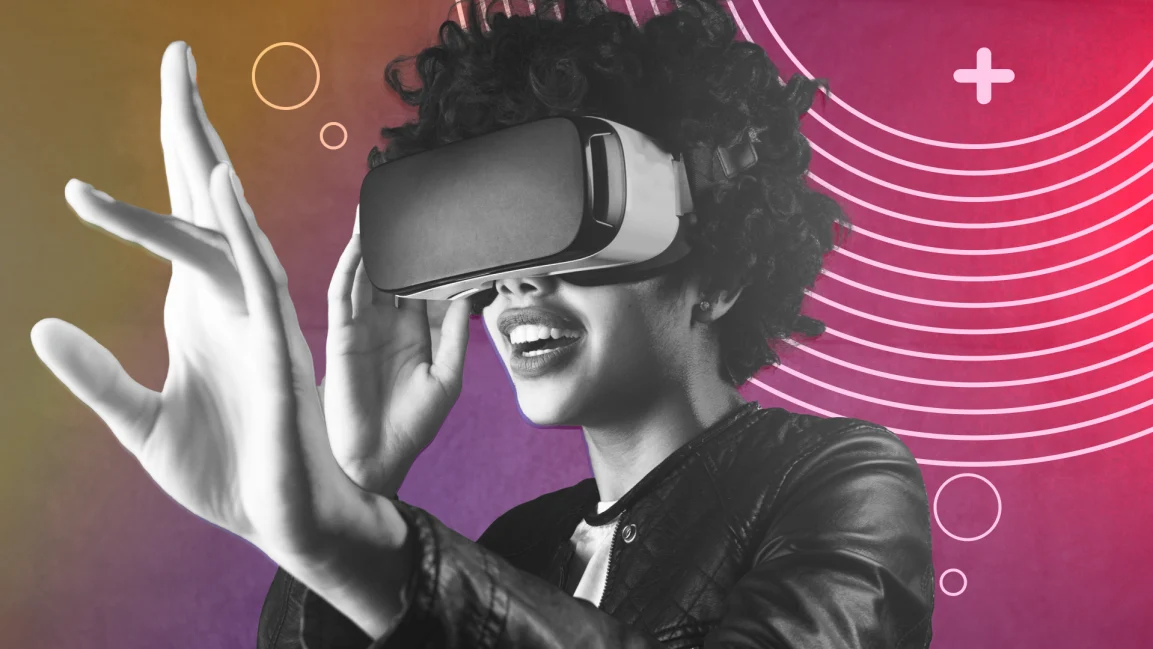Fast Company: The Metaverse Is Coming. Are Your Ethics Ready?
January 12, 2022
Every brand and company will need a metaverse strategy and defined metaverse ethical policies.
 Article originally published
Article originally published by Leigh Dow, Identiv VP Global Marketing, via Fast Company.
The metaverse and AR are revolutionizing the concept of how we communicate, live, work, and play around the world. It is the evolution of the social experiment, one that merges our physical and digital identities. This new “phygital” world allows us to create and recreate ourselves as many times as we choose. Our digital personas (avatars) will not be limited by our own physical bodies or siloed by social constructs. Through virtual worlds, NFTs, and immersive experiences, brands can reach consumers in an entirely new way. Every brand and company will need a metaverse strategy and defined metaverse ethical policies to create experiences that transcend today’s communication and equity barriers.
THE METAVERSE CAN LIBERATE OUR BOUNDARIES
Sapiens are constantly changing our personas and the roles we create for ourselves within social constructs. The metaverse allows us to build new constructs with digital avatars; perhaps a unique avatar for each version of self, or at minimum, an avatar that can literally be everywhere at once. It allows people to explore different facets of their personality in ways physical society does not often permit.
In the metaverse, users will be free to express themselves how they see fit at work, in life, and in play. In the physical world, plenty of people struggle with the pursuit of presenting themself in multiple lanes. Take me: I have a job working in tech marketing. But I also love to cook, I own businesses, I have a family. In sum, like most people, I have many interests. Unifying these disparate paths into my singular personality is a tricky balancing act. In the physical world, I find people want me to live in one lane. Society wants me to compartmentalize who I am. The metaverse solves for that. It allows us to tie the seemingly disconnected parts of ourselves together in a seamless package. It is a unique opportunity to represent our true personality—but this opportunity comes with significant ethical and security issues.
Because the metaverse allows multiple digital personas, we can pursue countless lanes without being physically present everywhere. Or anywhere, really. The amalgam of realism and fantasy offered by the metaverse creates an opportunity for celebrities (and the rest of us) to display our genuine selves alongside alter-ego virtual personas. Entertainers can produce concerts and sell tickets in the metaverse and be at their fashion show while the concert event actually takes place. They can sell merchandise and NFTs in the metaverse. Right now, celebrities face the challenge of having meaningful interactions with their fans because they simply cannot be everywhere at once. The metaverse will open exciting pathways for stars to engage with their digitally native audiences.
Apart from celebrities praised for “doing it all,” there are millions of people with diverse identities struggling to express the many facets of their interests. A lack of diversity and inclusion in most enterprises also silos people. Maybe the metaverse will finally liberate the harsh boundaries previously constructed. We can hope. It will take ethical marketers and programmers to create spaces and places for everyone to thrive in the metaverse. Additionally, we have to have strong identity and security solutions for the convergence of digital and physical worlds to protect the creators, the brands, and the consumers.
HOW DID WE GET HERE?
The internet has evolved in three phases: web one, web two, and web three. Web one was all about the information economy, mostly desktop reading of information. Web two was the rise of the platform economy. Social media, cloud computing, and smartphones. It kickstarted the creator economy. Platforms like Facebook, Google, and Spotify became massive, making people and their data the product. Web three is the token economy, driven by AI and blockchain. The internet is owned by users and builders and orchestrated by tokens like FIDO and NFTs. Tokens give creators property rights, the ability to own a piece of the internet.
DIVERSITY IN THE METAVERSE
The metaverse can be a tool to level the playing field and remove systemic bias. It is my hope the metaverse will foster equality: people will be judged more by actions and their creations rather than by physical appearance.
According to
Stanley Pierre-Louis, CEO of the Entertainment Software Association, “When it comes to diversity, the metaverse will signify a huge prospect to intensify diverse voices and creators.” But the truth is, only if we design it that way.
At its foundation, the metaverse reflects who we are, with all of our desires, fears, and prejudices included. But could it also soften and blur the lines of our identities? Could it even eradicate bias? In the metaverse, we could belong to the same collective community. We could build greater equity and inclusion.
As we look at the metaverse from the perspective of the video gaming industry or tech in general, we should focus on who is being included, who is being omitted, and how that is expected to change the future of the platform. To make this space more diverse, we need metaverse designers to include individuals who have been marginalized. Then the metaverse actually stands a chance of reflecting social ethics, diversity, and inclusion. It’s a step that was missed in the move from web one to web two. We have a chance to get web three right.
UNIFYING OUR PHYGITAL IDENTITIES
This metaverse is a social experiment, one that merges our physical and digital identities. This phygital world allows us to create and recreate ourselves as many times as we choose. Our avatars will not be limited by our own physical bodies.
Our metaverse personas will be able to speak any language, they will establish an emotional connection with people, and they will present themselves perhaps more authentically than in the physical world. Let’s respect and embrace those diverse identities and avoid making the same mistakes we did with the social network.

Leigh Dow is Vice President, Global Marketing at Identiv. Focused on tech transformations and the impact on the human experience.